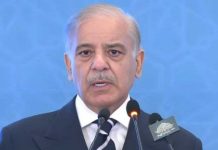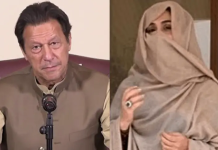Staff Report /DNA
LAHORE: In a major development in the ongoing legal proceedings against Pakistan Tehreek-e-Insaf (PTI) leaders, the court on Monday acquitted former foreign minister Shah Mahmood Qureshi in 2 cases related to the May 9 incidents. However, other prominent PTI figures were not as fortunate. Former Punjab minister Mahmood-ur-Rashid and former federal minister Sarfraz Cheema were each handed 10-year prison sentences, while PTI leaders Alia Hamza and Sanam Javed were sentenced to 5 years each.
The verdict has sparked a new wave of political debate across the country, with many questioning the apparent disparity in judicial outcomes for different leaders linked to the same series of events. The acquittal of Qureshi, a senior PTI figure and two-time foreign minister, has given rise to speculation that a “deal” may have been reached with the establishment — a claim widely discussed in political circles though officially unacknowledged. Observers note that Qureshi has been acquitted in multiple cases in recent months, fuelling predictions that he may soon be allowed to walk free entirely.
Meanwhile, the harsh punishments for those perceived as “non-compromising” leaders have amplified concerns over selective justice. Both Mahmood-ur-Rashid and Sarfraz Cheema have been vocal in their criticism of the government and have refused to distance themselves from PTI’s core political narrative. Likewise, Alia Hamza and Sanam Javed have been known for their staunch party loyalty and outspoken stance against what they term as “political victimisation.”
This pattern has led to growing unease among political commentators, civil society, and even members of rival parties. They warn that eliminating political opponents through legal manoeuvres sets a dangerous precedent. In Pakistan’s turbulent political history, leaders from various parties have faced sudden disqualifications, arrests, or convictions, only for such measures to be reversed years later when political winds change.
Earlier this year, several PTI leaders were handed down sentences in different cases, followed by their disqualification from legislative assemblies. Critics argue that this approach undermines the democratic process by reducing political competition and depriving voters of their chosen representatives. The current developments, they say, only reinforce the perception that Pakistan’s political arena remains heavily influenced by extra-parliamentary forces.
Analysts caution that today’s political victimisation against PTI could tomorrow be directed at another party. Pakistan’s political landscape is replete with examples of shifting alliances and changing fortunes. Those in power today may face similar treatment if the precedent of removing rivals through controversial legal processes continues.
The issue, many agree, goes beyond PTI itself. It touches the very foundation of democratic governance, where differences should be settled in the political domain, not in courtrooms tilted by political influence. The selective application of justice not only damages the credibility of institutions but also erodes public trust in the fairness of the system.
As the political and legal battles continue, one thing remains clear: the path Pakistan chooses now in dealing with its political rivals will have lasting consequences for the country’s democratic health and stability.

















